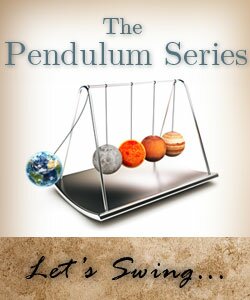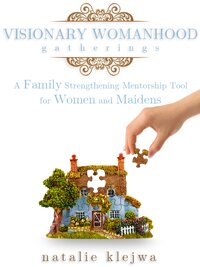By Contributing Writer, Yvonne Harink
Discontent is a sin that is its own punishment and makes men torment themselves; it makes the spirit sad, the body sick, and all the enjoyments sour; it is the heaviness of the heart and the rottenness of the bones. It is a sin that is its own parent. It arises not from the condition, but from the mind, as we find Paul contented in a prison, and Ahab discontented in a palace. – Matthew Henry
As I was thinking about ways that a wife can bless her husband, I hit upon that rare jewel that is so hard to find: Christian contentment. The Bible says contentment brings great gain. (1Tim. 6:6)
Covetousness, complaining and discontent results in rottenness in the bones, not only of the wife, but also of the husband. ”A good wife is the crown of her husband, but she who brings shame is like rottenness in his bones.” (Prov. 12:4) Paul tells us in Colossians 3:5 that we have to put to death covetousness, because it is idolatry.
While we live in an age of unprecedented wealth, luxury and abundance, an age of unlimited opportunity, we are also one of the most spoilt generations in history. Instead of thanking God for all his gifts, we’ve come to see these blessings as entitlements.
Cultivating the art of contentment is a painful business, as it involves diagnosing the sickness in our bones that has to be removed so that we can return to health. It involves admitting that we’ve bowed down to the idols of our time, and that they’ve robbed us of our joy, our trust and our contentment. Let’s take a look at some possible idols. There are hosts of them, but I’ll list a few:
The Idol of Materialism
Even though we know we are among the wealthiest people to have ever lived, though we can so easily see or read about the suffering and poverty in other parts of the world, we so easily get caught up in the quest for more stuff. It’s not necessarily about having more nice things, it’s also about craving things and being resentful when we don’t have them.
There is always something out of our reach. Bigger houses, more furniture, better vehicles, nicer clothing… materialism is the driving force of our day. It’s so hard to feel that our cup is full. Solomon already warned about the vanity of acquiring riches. “Whoever loves money never has money enough; whoever loves wealth is never satisfied with his income.” (Eccl. 5:10)
The Idol of Pleasure
Hedonism is the belief that the ultimate goal in life is to have fun. One more thrill, one more party, one more movie, one more holiday is what it will take to fill the cup, to give the satisfaction that we crave. It is another powerful idol alive and well in our day.
As Niel Postman notes in his book, Amusing Ourselves to Death, there is nothing more unfulfilling and tiring than pleasure. The meaninglessness of self-seeking pleasure is a leading cause of suicide and death.
The Idol of Knowledge
Education ranks way up there with the idols of our day. While it is said, “knowledge is power,” we do well to ask ourselves, “What knowledge?” If it is only about promoting our own ends, about the higher paying job, it is idolatry.
As in the days of the ancient Greeks, many seek salvation through knowledge. But unless knowledge is rooted in a relationship with Jesus Christ, it is a futile pursuit. As Solomon already said, “of reading many books there is no end, and much study is a weariness of the flesh.”
The Idol of Friendship
Women are the relational gender and especially susceptible to this one. We crave relationships, acceptance, understanding, and a sense of community. While friends are important and a wonderful gift from God, if we start to idolize them we set ourselves up for a crash.
As dear and as godly as they may be, friends cannot always be there for us. They may let us down because, like us, they are sinners. They may move away, or they may die. If friends become idols they will swallow our joy, our peace, and our intimacy with God. They can cost us our very lives.
The Idol of Marriage
Even marriage? Yes. If you take a look at the myriads of popular romance novels out there, you will find that even Christian writers tend to portray marriage as an idol. A typical plot starts off depicting a lonely, messed up girl, searching for meaning in life. Along comes Mr. Perfect who sweeps her off her feet, and fills her every need with contentment.
Marriage is pictured as salvation itself. The search for the ideal spouse and the magical romance has not built marriages in our day, but instead has left a trail of disillusionment and bitterness. As wonderful as marriage is, and as much as God uses it to build his kingdom, please don’t expect your spouse to be the source of your contentment. Don’t think he can fill your cup. False expectations are a sure way to destroy a marriage.
Can you think of other possible idols? Your family? Your work? Your health?
Cultivating contentment in life is an art, and it is also a mystery. It is a matter of the heart. We battle idols by worshipping the true God, by confessing our sins, and by thanking our Creator for his many blessings.
Our heavenly Father loves to give us good things, such as material blessings, pleasures, holidays, great books to read, loving friendships, and an intimate marriage. It’s only when we take these blessings for granted; when we see them as rights, earned by our own works; when we put our trust in them, and forget to thank God for them that we lose the joy of contentment.
The mystery of contentment is this: the more we share the cup that God has filled for us–the more we pour it out freely for others–that’s when it somehow mysteriously stays full and even grows. This is no less a miracle than the jar of oil that stayed full for Elijah’s widow. (1Kings 17:16) Contentment grows by subtraction rather than by addition. As we learn to desire less, and we gain more.
May we bless our husbands by cultivating true contentment in Jesus Christ.





Thanks for giving the mystery to contentment. I have been amazed at my own capacity for unhappiness, unreasonable in the light of God’s promises for daily grace and a rich inheritance in the world to come.
Thank you for such a rich and encouraging article! A great reminder as we move into the holidays when everyone around us is thinking about the trappings and not the heart of the celebration. Also, I was so happy to see you hit on the relational idol. That really is a trap that can siphon away the life-blood of our families and it is self-seeking rather than God seeking.
Oh how easy it is to forget what we are really consumed with! We are a people who are looking for love in all the wrong places. Thanks for encouraging us to look to God!
1 Tim. 6:6 connects godliness with contentment, a contrast with 6:5 which warns against those who imagine godliness is a means of gain. In 6:8, the simplicity of contentment is described: if we have food and clothing we will be content. As for those who are rich in this world, godliness calls them to be rich in good deeds, liberal and generous (to the poor), laying up for themselves a good foundation for the future life (6:17-19). This echoes Jesus’ teaching about selling treasures on earth, giving to the poor, and having treasure in heaven. Instead of being anxious about getting better food and drink, and more expensive clothing, disciples should seek first his kingdom and righteousness (and all these things, the simple needs of food and drink and clothing, will be added). Such focus and contentment and generosity means refusing to remain rich in this world.
Quick thought on this pendulum issue (want to be careful not to swing it too far in the opposite direction and promote error)…I know many wealthy Christians who are able to provide MUCH out of their wealth to serve the Kingdom. I’m grateful for God’s provision for all of His children. But, of course, some will have more than others. And this is relative. A person may consider himself to be “poor,” and yet those in worse circumstances may consider him to have “much.” These lines will be drawn in different places by different Wemmicks, and we can easily fall prey to Phariseeism when we take it upon ourselves to draw those lines. God doesn’t do that in His Word; therefore we must be careful not to do that as well.
If all Christians were poor or had very little, there would be tragic consequences to the world on many levels. The Bible has much to say about hard work and the pursuit of honest gain. Money is not evil. Only the love of it. There are parables and principles in the Bible that illustrate this fact.
For further study on this topic, I refer you to:
Productive Christians in an Age of Guilt Manipulators by David Chilton
Accidental Pharisees by Larry Osborne
Wow! What an outstanding post, that covers just about every area in a woman’s life. I see some of these idols in my own life, and am challenged to go to the Lord in prayer and ask for Him to renew my mind, and align my priorities and focuses with His Word!
This blog is way up on my favourites list! Thank you for investing in it…
Thank you Yvonne for these glorious truths to offer us self examination in these areas of our lives. May we keep our hearts and minds focused on the Lord.